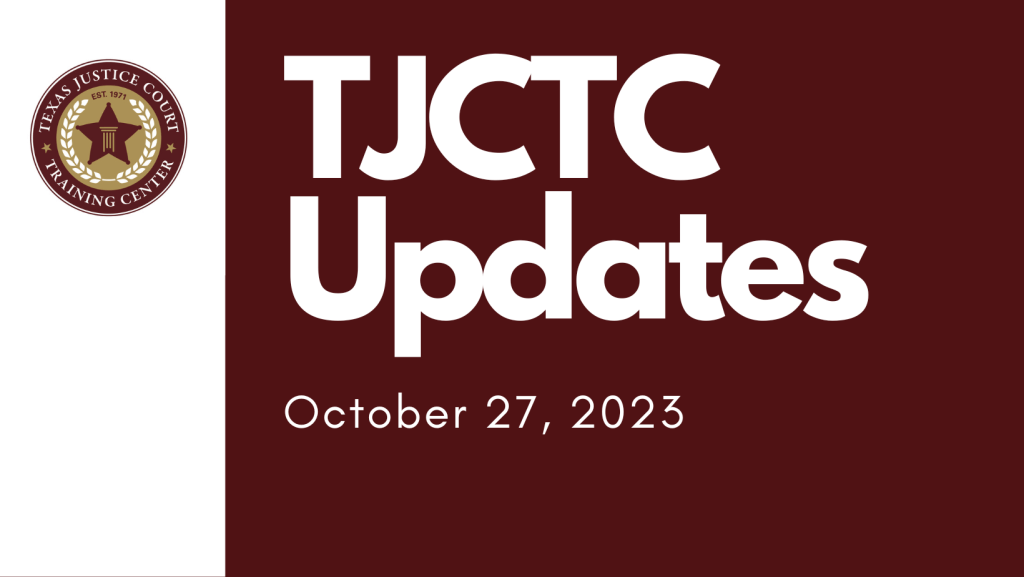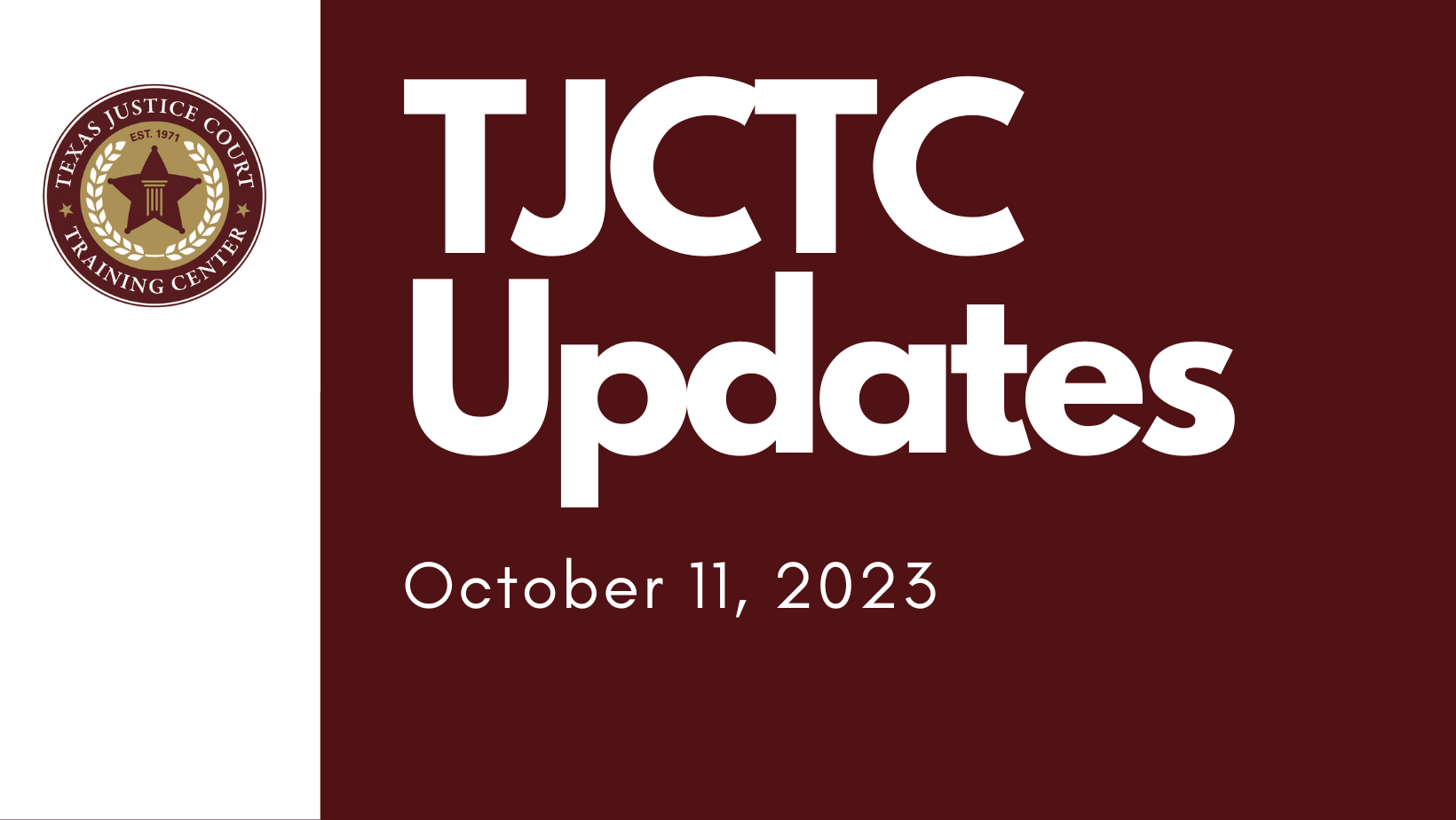Good Afternoon Judges, Constables, & Court Staff,
Since our last update, there have been a few new attorney general opinions, webinar announcements, legal board update, and other updated resources. In addition, we have compiled some family violence resources in honor of October being Domestic Violence Awareness Month. Please take a few minutes to review this email fully.
Attorney General Opinions
Click the opinion numbers below to read the full opinions on the Texas Attorney General’s website.
Question:
Whether an elected constable may serve as a student resource officer, employed as an independent contractor, with a school district located in the constable’s precinct.
Summary:
Education Code section 37.081 authorizes a school district to retain the services of a school resource officer. A court would likely conclude that a school resource officer may not be retained as an independent contractor. Neither Texas Constitution article XVI, subsection 40(a) nor the common-law doctrine of incompatibility prohibit a constable from acting as a school resource officer under a memorandum of understanding to retain the constable that complies with Education Code section 37.081.
Question:
Whether the District Attorney’s Office located in a stand-alone building with no other courts or court offices is a building that houses the operations of a district, county, or justice court for purposes of an expenditure from the courthouse security fund
Summary:
Under Code of Criminal Procedure article 102.017(b), a county commissioners court may use monies from the courthouse security fund to purchase or repair bullet-proof glass related to buildings that house the operations of district, county, or justice courts. A court would likely conclude that a building does not house the operations of a district, county, or justice court if it is devoid of adjudicators.
Updated Resources
You may have already noticed, but the updated Deskbooks are being posted. Please be patient while we finish the last few updates and work diligently to update the forms, charts, checklists, and other resources.
*Updated* Family Violence and Other Criminal History Reporting for Justice Courts
This module now includes legislative updates and updated procedures for CJIS reporting. Remember, even if you have previously taken this course in a prior academic year, you may receive credit again for the FY24 year.
*Updated* Drivers License Revocation Hearings
This module now includes legislative updates. Remember, even if you have previously taken this course in a prior academic year, you may receive credit again for the FY24 year.
*New* Interpreters & Spanish Terminology Self-Paced Module
Earlier this month we posted a brand-new module that covers legal issues related to interpreters, including help for appointing interpreters, a Spanish/English legal glossary, and more! Judges and court staff can get 3 hours of credit for completing the module. Constables and their staff may also find this module to be a good resource when dealing with persons with limited English proficiency or language skills.
Both modules can be found on the TJCTC Self-Paced Module Page.
Webinars
Juvenile Criminal Diversions Webinar
This webinar on Monday, October 30, 2023 at 2:00 pm is full, however it will be posted as a recording for credit a few weeks after the live webinar. Look for an email announcement when it is available. Also, note we will also be releasing more juvenile criminal diversion resources including forms and a new deskbook chapter this fall as well.
Emergency Detention Webinar
Join attorneys from the Judicial Commission on Mental Health to learn about emergency detention processes, legislative updates, and common issues at our next webinar on Tuesday, November 7, 2023 at 2:00 pm. Mark your calendars and look for a registration email coming soon!
National Center for State Courts Webinars
NCSC consistently provides excellent virtual education for judges and court staff around the country. They have an upcoming webinar about Self-Help Centers that may be interesting to JPs, Constables, their staff. You can find that webinar, upcoming webinars, and past recordings on their website.
Domestic Violence Awareness Month
Did you know that October is Domestic Awareness Month? This month we have been collecting resources for you to use and share with your communities. Check out TJCTC’s Domestic Violence Awareness Month Newsletter.
Legal Question Board and Registration Update
We know it has been a challenging few months with all of the updates to TJCTC’s database impacting your logins, registration pages, and the legal board. We ask you to please be patient with our staff as we navigate these updates together. This is a busy time as our staff implements these changes and prepares for the next academic year of programs for all of you.
If you have questions regarding your login, registering, or accessing the legal board, please call our main line (513) 347-9927 for April to direct you to the appropriate person or email Jeff Grajek at jg60@txstate.edu. Please continue to direct legal questions to the legal board or attorney on call by dialing (512) 347-9927 and pressing 1.
Thank you so much for your time and attention! The TJCTC team is looking forward to another great year with all of our court staff, constables, and justices of the peace. Note, these new update emails will be saved to the TJCTC Blog, The Docket, so you can access them anytime.
All the Best,
Thea & the TJCTC Team



